“Integrative psychiatry aims to give you the tools to heal yourself and improve your mental health for the long term.”
Introduction
If you’ve seen a traditional psychiatric provider, you may have received a prescription for psychotropic medications. These psychiatrists may have also referred you to a therapist for ongoing support. While medications and therapy are important, integrative psychiatry does more than manage symptoms. And the research shows it could be better for your mind and body. Here’s how integrative psychiatry keeps your brain healthy.
Benefits to Integrative Psychiatry
If you’re thinking about starting a new treatment strategy or switching from the one you have, you probably want to know what benefits you can expect. You don’t want to invest your time and energy into another treatment that may not be helpful in the long run. It can be so frustrating to jump from medication to medication, not feeling like you’re making progress with improving your mental health.
The integrative psychiatry approach is different from traditional psychiatry. At KarmaDocs and KarmaTMS, we take a whole-body approach to your mental health. Our integrative psychiatry team supports patients as they meet and exceed their goals. We are proud providers of both traditional and holistic mental health treatments. First, let’s get specific on what we mean when we talk about integrative psychiatry methods. What Is an Integrative Approach to Mental Health? Our approach combines methodologies to craft care plans personalized to you. We make recommendations that help you improve your mental health in the long term. Our care plans often include medications, but these are a component of our treatment, not the core. We also help you improve your habits and your mindset, so you can help yourself.
Our integrative psychiatry approach includes:
- Medication management with a deep understanding of side effects and your co-morbid conditions. Our providers have experience managing patients with multiple diagnoses and prescriptions while understanding that medications are only a part of complete mental health care.
- Supportive psychotherapy that helps you understand yourself and re-work your habits so they improve your quality of life. This is more than expressing your emotions. Our psychotherapists are here to help you take steps towards your mental wellness goals, so you can build the life you deserve.
- Mindfulness practices that re-orient your brain towards gratitude rather than anxiety. This may include journaling, meditating, slowing down, and re-working your habits. We also do breathing techniques and neurofeedback to help you understand and gain control of your thoughts.
- Nutritional consultations that take the gut-brain connection into account. We may recommend dietary changes, nutraceutical supplements, or BrainTune honey. We’ve learned that nutrition impacts not only physical health but mental health as well.
Transcranial Magnetic Stimulation (TMS)
Transcranial Magnetic Stimulation (TMS) treatments when other methods haven’t been successful. Our cutting-edge qEEG TMS system helps re-wire your thought patterns so that you can create new mental habits.
This can all be accomplished through integrative psychiatry and is a whole new way of approaching mental health care. It’s not just about managing your depression or anxiety – it’s about making your life better. These approaches have shown real physical and mental benefits. Let’s talk about the evidence for integrative psychiatry improving brain health.
How Integrative Psychiatry Improves Brain Health
Here are science-backed methods about how integrative approaches help your brain. Mindfulness Practices and the Brain Mindfulness and meditation may cause lasting changes in brain areas and might even help encourage brain plasticity. They’re also essential in an integrative psychiatry approach. Some experts believe habitual meditation could treat illnesses that arise in the hippocampus. This includes PTSD, depression, and other mood disorders.
Other research has shown that connectivity also changes after several weeks of meditation. A region called the precuneus also improved after this regimen, involving memory, integrating information, and perception. In one study, 40 days of mindfulness meditation was linked to reduced symptoms of depression and lessened anxiety in participants.
Some researchers believe meditation could help people with Alzheimer’s and dementia. In this group, habitual meditation is associated with changes in gray matter of the brain. People who meditate have significantly higher volumes of gray matter, which is made up of neurons. After meditation, these people also have a thicker cerebral cortex, which has been linked to intellectual ability.
These changes happen after mindfulness and meditation have become a habit. Some studies have shown that people who integrate meditation into their daily lives have a higher quality of life, despite loneliness and isolation. But what other integrative habits can improve your brain? Habit Changes and Brain Health. In integrative psychiatry, we often counsel patients to get more exercise, make more time for sleep, or limit screen time. Let’s talk about how these habits help your brain:
- Exercise has been proven to help with cognitive function. Some even call exercise a “polypill” because it’s helpful for many body processes. Exercise habits help us grow neurons, new blood vessels, and brain volume. Just one exercise session can improve cognitive performance.
- Better sleep habits can help with memory while improving your metabolism and fatigue. Sleep is the time for the brain to reorganize and recharge itself. While we sleep, our brains wash away waste with fresh brain fluid. Chronic sleep deprivation is associated with emotional and mental problems. By improving your sleep habits, you can improve your life.
- Controlling screen time helps the brain regulate sleep/wake cycles and your attention. You flood your brain with dopamine when you jump on your phone first thing in the morning. This sets off the reward cycle, making it harder to stay off your screen for the rest of the day. Excessive screen time is linked to a host of bad effects, including depression and sleep problems.
These are just a few of the habit changes we counsel our patients through to implement in integrative psychiatry. Many of our patients struggle with a specific habit change: food. Let’s discuss how nutritional improvements can help your brain.
Nutrition and the Brain
Better nutrition is essential in integrative psychiatry. Research has proven that our diets significantly affect our mental health. The best research we’ve seen so far has supported the Mediterranean diet. This is a diet high in fresh fruits and vegetables and low in processed foods and red meats. Studies have shown that this diet is linked to improved mood and reduced anxiety in adults with major depression.
A better diet is also associated with less risk of cognitive decline as we age. In older adults, the Mediterranean diet may be protective against age-related dementia. These nutritional changes have been shown to reduce the risk of neurological disorders by nearly 30% in older adults.
We haven’t seen much research into how the Mediterranean diet affects the brain, but what we have seen is encouraging. One study published this year showed that obese men reduced shrinkage in their brains after getting on a more balanced diet. And these changes aren’t just good for brain health – they can help limit your risk for heart disease, diabetes, cancer, and liver disease.
Nutritional changes are a great way for patients to improve not just their mental health but how they feel physically as well. Now let’s round out this list by discussing how psychotherapy benefits your brain. Integrative Psychotherapy and Brain Health Psychotherapy is an important element of integrative psychiatry and mental health care. Therapy helps patients change their thought habits and their physical habits as well. And it’s been linked to interesting changes in the brain.
Therapy
In one study, patients showed reduced activation in the subgenual cingulate cortex, the hippocampus, and the amygdala after 15 months of therapy. These changes were associated with improved symptoms as well. And another study found that some brain areas had less glucose metabolism after therapy, which is correlated with ruminating and maladaptive memories.
Researchers believe that brain changes like this could result from changing thought patterns, beliefs, feelings, and behaviors as a result of integrative psychotherapy. But experts are still not sure what these brain changes mean long-term.
Regular psychotherapy is one of the most important tools in helping patients heal from mental illness.
Psychotherapy, nutritional changes, habit modifications, and mindfulness are unique components of integrative psychiatry. You likely won’t find these modalities in traditional mental health care. Let’s clarify why we use these treatments instead of just medications and psychotherapy.
The Ultimate Goal of Integrative Psychiatry: Healing for the Long-Term
Integrative psychiatry aims to give you the tools to heal yourself and improve your mental health for the long term. At KarmaDocs and KarmaTMS, we use these strategies to improve your brain health and your life. Our integrative treatment plans are aimed at helping you heal from PTSD, depression, anxiety, post-partum mental illness, and more. Contact our team to learn how integrative psychiatry can meet your mental health needs.
Resources
1) Lardone A, Liparoti M, Sorrentino P, Rucco R, Jacini F, Polverino A, Minino R, Pesoli M, Baselice F, Sorriso A, Ferraioli G, Sorrentino G, Mandolesi L. Mindfulness Meditation Is Related to Long-Lasting Changes in Hippocampal Functional Topology during Resting State: A Magnetoencephalography Study. Neural Plast. 2018 Dec 18;2018:5340717. doi: 10.1155/2018/5340717. PMID: 30662457; PMCID: PMC6312586.
2) Yang, CC., Barrós-Loscertales, A., Li, M. et al. Alterations in Brain Structure and Amplitude of Low-frequency after 8 weeks of Mindfulness Meditation Training in Meditation-Naïve Subjects. Sci Rep 9, 10977 (2019). https://doi.org/10.1038/s41598-019-47470-4
3) Dwivedi, M., Dubey, N., Pansari, A. J., Bapi, R. S., Das, M., Guha, M., Banerjee, R., Pramanick, G., Basu, J., & Ghosh, A. (2021). Effects of meditation on structural changes of the brain in patients with mild cognitive impairment or alzheimer’s disease dementia. Frontiers in Human Neuroscience, 15. https://doi.org/10.3389/fnhum.2021.728993
4) Pandya, S. P. (2019). Meditation to improve the quality of life of community-dwelling ever-single older adults: A multi-city five-year follow-up experiment. Journal of Religion, Spirituality & Aging, 32(1), 45–69. https://doi.org/10.1080/15528030.2019.1600631
5) Hashimoto T, Tsukamoto H, Ando S, Ogoh S. Effect of Exercise on Brain Health: The Potential Role of Lactate as a Myokine. Metabolites. 2021 Nov 29;11(12):813. doi: 10.3390/metabo11120813. PMID: 34940571; PMCID: PMC8709217.
6) Eugene AR, Masiak J. The Neuroprotective Aspects of Sleep. MEDtube Sci. 2015 Mar;3(1):35-40. PMID: 26594659; PMCID: PMC4651462.
7) Nakshine, V. S., Thute, P., Khatib, M. N., & Sarkar, B. (2022). Increased screen time as a cause of declining physical, psychological health, and sleep patterns: A literary review. Cureus. https://doi.org/10.7759/cureus.30051
8) Grajek, M., Krupa-Kotara, K., Białek-Dratwa, A., Sobczyk, K., Grot, M., Kowalski, O., & Staśkiewicz, W. (2022). Nutrition and mental health: A review of current knowledge about the impact of Diet on Mental Health. Frontiers in Nutrition, 9. https://doi.org/10.3389/fnut.2022.943998
9) Kaplan, A., et al (2022). The effect of a high-polyphenol Mediterranean diet (Green-Med) combined with physical activity on age-related brain atrophy: The dietary intervention randomized controlled trial polyphenols unprocessed study (Direct plus). The American Journal of Clinical Nutrition, 115(5), 1270–1281. https://doi.org/10.1093/ajcn/nqac001
10) Radd-Vagenas, S., Duffy, S. L., Naismith, S. L., Brew, B. J., Flood, V. M., & Fiatarone Singh, M. A. (2018). Effect of the Mediterranean diet on cognition and brain morphology and function: A systematic review of randomized controlled trials. The American Journal of Clinical Nutrition, 107(3), 389–404. https://doi.org/10.1093/ajcn/nqx070
11) Beauregard, M. (2014). Functional neuroimaging studies of the effects of psychotherapy. Dialogues in Clinical Neuroscience, 16(1), 75–81. https://doi.org/10.31887/dcns.2014.16.1/mbeauregard

